Flexible training organization
In early October 2025, the Ministry of Education and Training organized seminars to complete the draft Law on Higher Education (amended). According to Article 26 "organization of training and granting of certificates" of this draft, the organization of training in higher education will be implemented flexibly, in accordance with the diverse learning needs and lifelong learning orientation of learners.
A notable content is the addition of regulations on granting “university education certificates”, in addition to traditional degrees. University education degrees will be granted to learners after completing the training program at the corresponding level, while university education certificates will be granted after learners complete a course or part of the training program. These diplomas and certificates have legal value to confirm the level and capacity of learners.
According to the current regulations of the Law on Higher Education 2018, the system of higher education degrees includes bachelor's, master's, doctoral degrees and equivalent degrees. Learners who complete the training program, meet the output standards of the training level as prescribed, and fulfill the obligations and responsibilities of the learner will be awarded a degree at the corresponding training level by the principal of the higher education institution.
Therefore, the inclusion of “university education certificate” in this draft amendment is considered an important breakthrough, towards an open education system, where learners can study and accumulate knowledge and skills according to their individual needs.
Dang Nguyen Duc, a student majoring in Computer Science at the University of Technology (Vietnam National University, Ho Chi Minh City), believes that the new regulation on “university education certificates” is a positive step forward. Duc understands that this type of certificate is granted to learners after completing a certain course or subject, thereby making the learning process more flexible and open.
According to Duc, many universities now have mutual recognition of credits and courses, so if the “university education certificate” is implemented, students can accumulate results from many different institutions to complete their training program. “This is very convenient for students, especially those who want to study according to their own abilities and conditions, instead of being tied to a fixed program,” the male student expressed.
An expert in training and human resource development at the University of Social Sciences and Humanities (Ho Chi Minh City National University) commented that the addition of the “university education certificate” type contributes to diversifying the training program, allowing schools to design more flexibly, suitable for each target group. If the recruitment work is well implemented, the training program meets the needs of society and learners, this regulation will contribute to promoting the revenue and competitiveness of higher education institutions.
According to this expert, for the “university education certificate” to be truly effective, it is necessary to issue guidelines for its implementation as soon as possible. These guidelines will help educational institutions and learners clearly understand the objectives, content, and conditions for its synchronous and unified implementation.
In particular, if the certificate training program is issued independently, it is necessary to clearly specify the knowledge content, the number of credits or hours, the requirements for lecturers participating in teaching, along with the criteria for learners to be recognized as having completed the program. In addition, the document also needs to clarify the authority to issue certificates of each educational institution to ensure transparency and consistency.
Where a certificate program is part of a diploma program, the regulatory authority should clarify certain key issues. For example, whether the duration of the diploma program will be extended by incorporating the certificate component; whether the student is required to participate in the certificate program or whether it is optional.
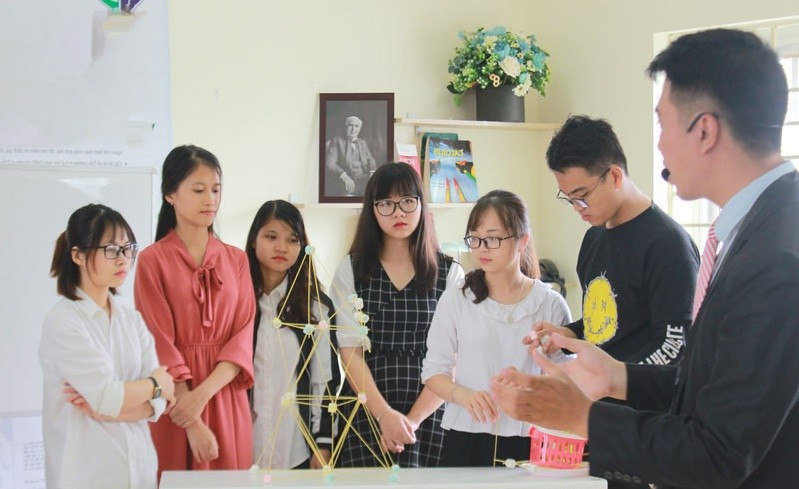
Need to clearly define social purposes and values
From another perspective, MSc. Pham Thai Son - Director of the Admissions and Communications Center, Ho Chi Minh City University of Industry and Trade, said that the new regulations on certificates need to be clarified in terms of their intended use. He stated his opinion: "It is necessary to clearly define what a university education certificate is used for, whether it is a certificate of completion of a group of subjects or an intermediate degree for transfer and work. If it is only written in general terms, students may misunderstand that once they complete a subject, they will apply for a certificate, which will be very complicated in management."
According to MSc. Son, certificates only have real value when they are associated with specific skills and recognized by society. He noted that mutual recognition between universities is possible, but the core issue is whether businesses and the labor market accept it or not. “When the certificate is recognized by the labor market, then it will have real effect,” said Mr. Son.
The human resource training and development expert at the University of Social Sciences and Humanities also emphasized the need to carefully consider the necessity and practical applicability of the new type of certificate, avoiding the situation of "blooming" too many types of certificates with limited value, causing waste of resources. In addition, he warned that the slow issuance of detailed guidance documents could cause the implementation process to be unsynchronized between schools, causing confusion for learners in choosing the right program.
Sharing the same view with Master Pham Thai Son, according to this expert, another important factor for the "university education certificate" to be effective is policy communication. "Legislative agencies and training institutions need to coordinate propaganda so that society clearly understands the value and scope of use of this type of certificate. When learners, businesses, employers and training institutions all recognize it, the "university education certificate" will truly have meaning," he emphasized.
Experts agree that, if implemented transparently, with detailed guidelines and close supervision, “university education certificates” can become an important tool in building an open, flexible and substantive higher education system. This will be an environment where learners can choose a suitable learning path, accumulate knowledge according to their personal needs and apply it to work practice - lifelong learning.
Source: https://giaoducthoidai.vn/chung-chi-giao-duc-dai-hoc-chia-khoa-hoc-tap-linh-hoat-post752937.html



![[Photo] General Secretary To Lam attends the 95th Anniversary of the Party Central Office's Traditional Day](https://vphoto.vietnam.vn/thumb/1200x675/vietnam/resource/IMAGE/2025/10/18/1760784671836_a1-bnd-4476-1940-jpg.webp)
![[Photo] Collecting waste, sowing green seeds](https://vphoto.vietnam.vn/thumb/1200x675/vietnam/resource/IMAGE/2025/10/18/1760786475497_ndo_br_1-jpg.webp)




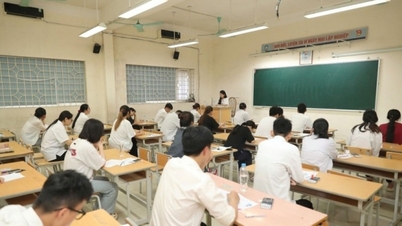

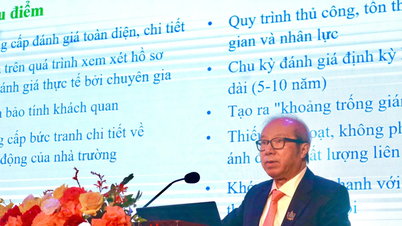

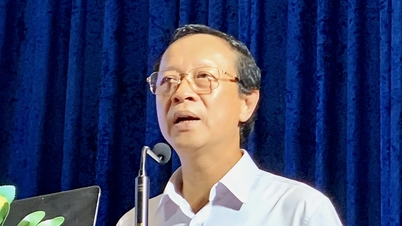


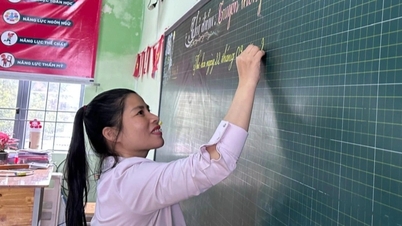














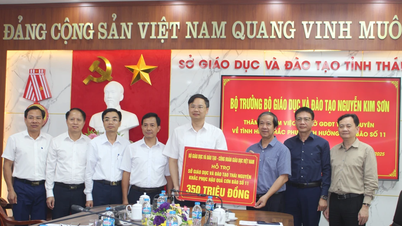









































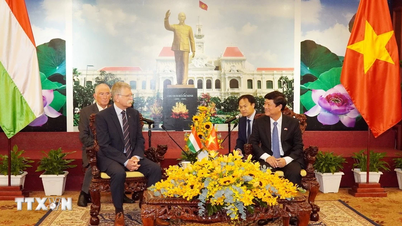
































Comment (0)